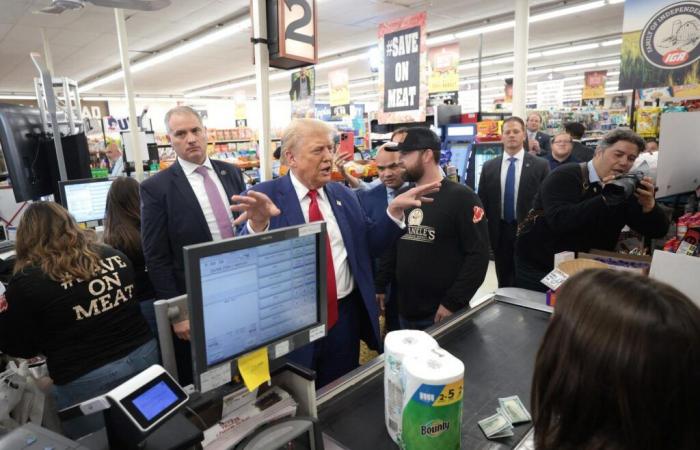US President-elect Donald Trump sees himself as a Roman emperor, ruling the country from his palace in Mar-a-Lago, Florida. Will he know the fate of Diocletian, who reigned over Rome between 284 and 305? He too found himself confronted with a country angry with inflation, creating great social and political instability. Unable to curb the rise in prices, caused by the continued devaluation of the currency, he opted for a general blocking of the price of more than a thousand food and industrial goods through a “maximum edict” which also capped the salary level. Known to all economists, this solution ended in a resounding failure, pushing trade towards barter and ultimately destroying confidence in money.
Even before the invention of money, all the leaders of the world grappled with the phenomenon of a general and lasting increase in the value of goods, the definition of inflation. And the latter has often guided the course of history. Many analysts and economists point to the responsibility of the inflation of the last two years in the United States in the triumphant election of the future president. “It is the major subject of this election with immigration, especially among the most modest, assures Thomas Philippon, professor of finance at New York University. Without inflation, the score would have been much tighter and more uncertain. »
Read also | How inflation, a factor in the pro-Trump vote, has affected Americans over the past four years
Read later
Surprising in a country with a thriving economy, low unemployment and inflation which fell below 3% this summer. But that’s not what the Americans looked at. They have seen that, since 2020, the prices of food and energy, those that we see on a daily basis, have increased by almost 25%. In May, Harvard economist Professor Stefanie Stantcheva conducted a large survey on the population's feelings. More than 70% of those questioned felt that their purchasing power had deteriorated. And, when it comes to naming someone responsible, they point to the Biden administration as a priority. Second comes the other culprit, especially among Democratic sympathizers: the greed of the companies who took advantage of it to increase their profits. Far ahead of traditional explanations such as shortages, geopolitics or energy prices. Of course, there were salary increases, but they came too late to erase the trauma of the brutal increase in 2022-2023.
You have 61.71% of this article left to read. The rest is reserved for subscribers.







